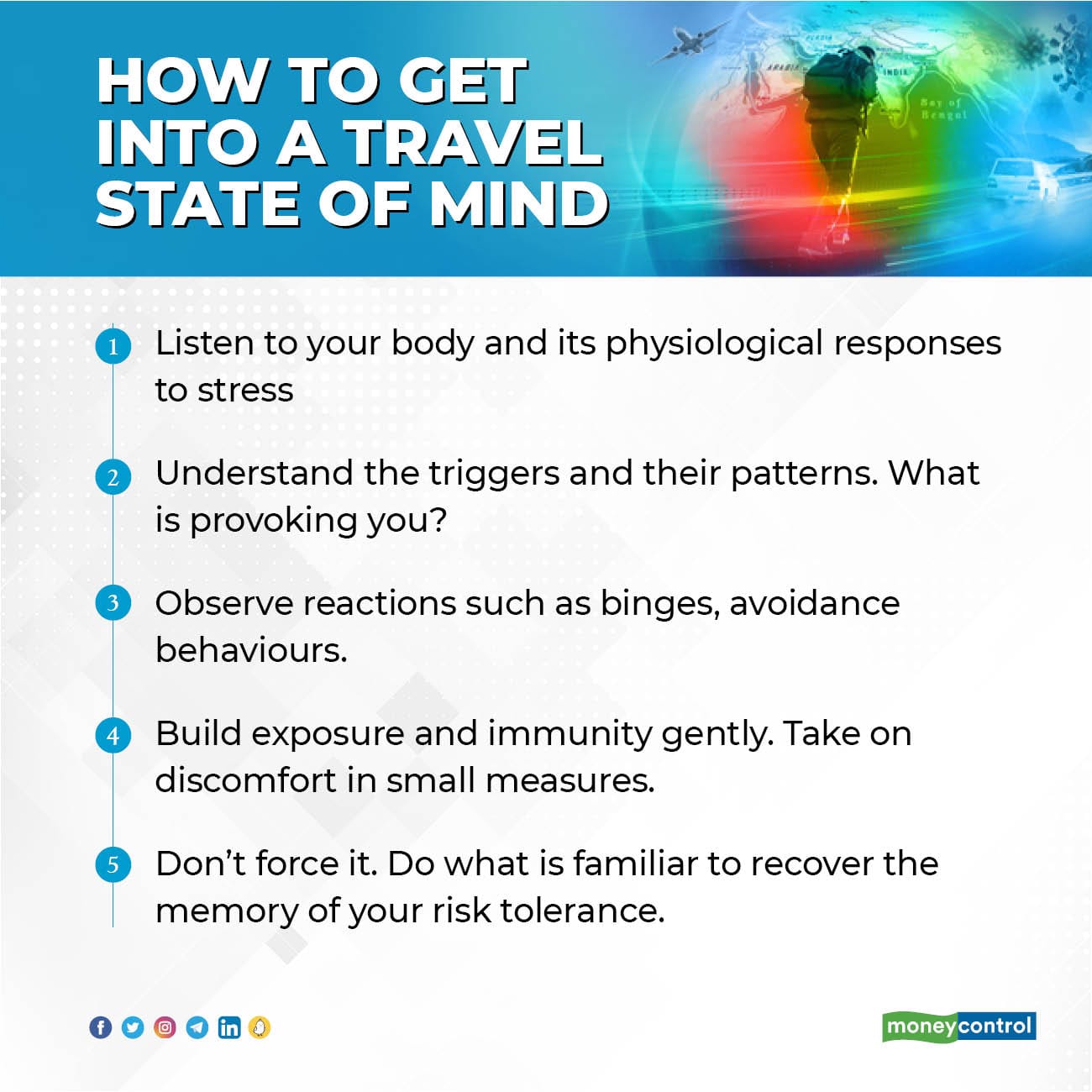Build up your exposure by engaging with socializing activities that are largely within your comfort zone but then adding one in a week or fortnight that feels uncomfortable. (Illustration by Suneesh K.)
Note to readers: Healing Space is a weekly series that helps you dive into your mental health and take charge of your wellbeing through practical DIY self-care methods.
Don’t be fooled by the many Instagram accounts that have been filled up with travel pictures over the last year; a lot of them are still throwbacks or aspirations.
A whole many people in the post pandemic phase that we’ve come through collectively, have been benched, shut in, and hesitant to socialize, thanks to the residual social anxiety the experience has left us  holding.
holding.
We aren’t sure the Covid-19 pandemic has entirely gone, indeed evidence of variants in other parts of the world are frightening, and we even find heading to work on a regular basis difficult.
We blame the commute, the office environment, or changed schedules with half the workforce still working from home. We’re not sure what it is but our bodies and minds are unwilling participants now in the events and social situations that seemed so effortless before all this went down.
Perhaps finances have also been hit and staying in makes us feel like we’re being ‘sensible’. We prefer being at home, cosy, safe, and unexposed or invulnerable. And yet, this is no way to live we keep telling ourselves. We want company, we want conversation, and we want our bravado and independence, our right to explore the world freely, back.
The first thing you need to understand is that it’s not just you; that slight rise in panic you feel, increased blood pressure, heart rate, a heaviness in the pit of your abdomen, dryness in the throat, when you need to leave home, wondering if you should cancel until you actually get there, is a product of our age. The exhaustion you feel on returning, and vowing not to head out again for a long time, is also a part of it.
The world has felt startlingly unsafe to us, and even if you physically move around, meeting obligations, socializing, your body is still carrying the residue of the fear. It has sensed a heightened threat and it remains primed to respond on a hair trigger. Simply put, you are, we are many of us, on high alert.
The way to counter it is not to force yourself to do what you don’t want to do or what evokes a strong response or resistance to it. It’s important to listen to your body, observe the responses to stimuli. What are the situations that cause you the most anxiety or stress?
For instance, are you comfortable meeting one or two people but have heightened anxiety when it’s a crowd? Are you better at meeting indoors or outdoors? In a structured activity like playing a game or watching a movie, or at a dinner where the pace is free flowing? None of these are the right or wrong choices, they’re just what works for you.
Once you’ve determined what triggers you, observe the variety of ways in which you respond. One is your physiological responses, but also do they set off habits like binge watching, eating, cleaning, do you engage in avoidance behaviours like not charging your phone or keeping it on silent so you can ‘miss’ calls?
It's perfectly fine to create a system of responses to what triggers you the least. So maybe you’re getting out of the house to go on walks, and can deal with one friend or two at a time, but anything more than that is too much. That’s okay. That’s a place to start.
Build up your exposure by engaging with socializing activities that are largely within the comfort zone but then adding one in a week or fortnight that feels uncomfortable. For instance, attend that party or concert your friends or family is attending even when you don’t feel like it. But build in a save, like leaving early, arriving late, setting a duration for which you will be there. As you slowly build up your ‘immunity’ in this way, increasing the number of friends or colleagues you can meet, greet and hang out with, travel will feel less of a reach.
When you consider travel, also repeat the same system. First observe your reactions and physiological responses to what provokes you to feel uncomfortable. Large groups, small groups, solo? Familiar or unfamiliar locations? Short or long distance? Structured or free movement? Then build your exposure to what feels comfortable. Perhaps you’d rather go to a place you’ve been to before and stay at a known Airbnb or hotel for four days and take one day to visit a nearby unknown destination. Build it up, don’t force your itinerary, least of all based on what others travelling with you want, or what you think you should be doing to seem healthy.
Why should you begin to consider travel, whether it’s a commute or a long-distance trip? Because mentally, we need to begin to make this movement out of the status quo in which we have become entrenched. The static position is born out of fear and vulnerability, and a feeling of comfort with our fears is not growth. The more space we give our fears, the more they feed off our insecurities. We are still living in the long shadow of the pandemic and while you don’t need to take risks and throw caution to the wind, it’s important for regaining our sense of security, to begin to stake our claim to the world again.
